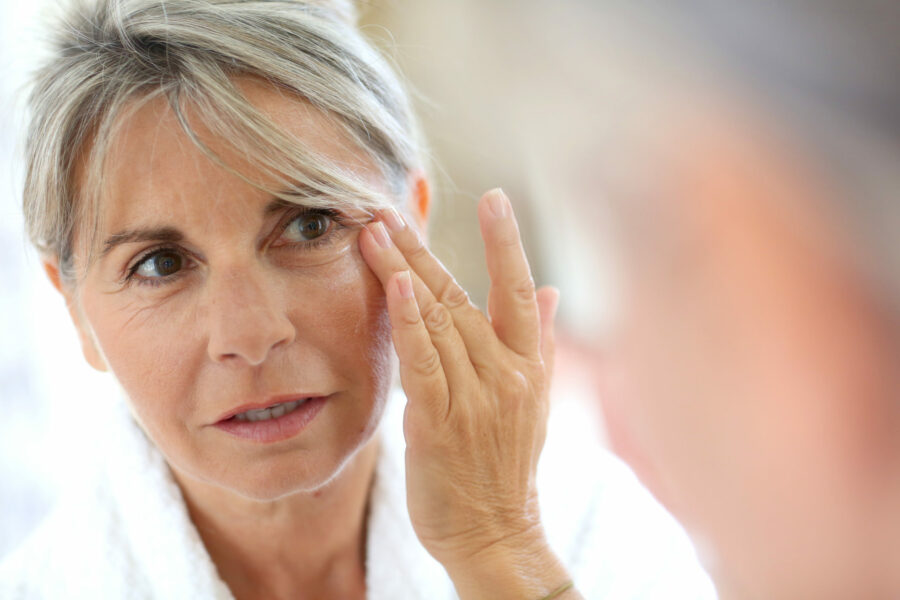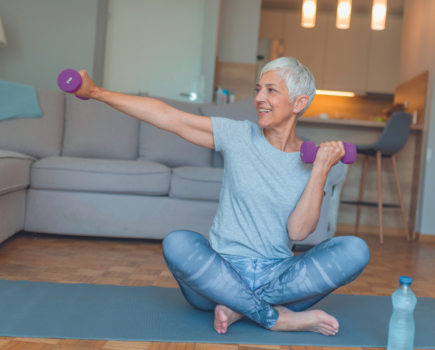Get a better night’s sleep with this essential advice from Sammy Margo, EarHub’s sleep and relaxation expert.
If you’re struggling to get enough sleep, you’re not alone. It’s estimated that more than 37 million Brits don’t get the recommended seven to nine hours of sleep per night, and one in seven of us is surviving on dangerously low levels of sleep (under five hours).
But how can we begin to fix it? Read on to learn our sleep expert’s essential tips to getting enough sleep.
How long should I sleep each night?
Most of us need somewhere in the region of seven to nine hours each night. Some of us may need as few as six hours or as many as ten, but interestingly, you actually need less as you age. On average, after the age of 65 you will need seven hours of sleep each night to live energised.

What can I eat to improve sleep?
I call bananas the sleeping pills in a peel — they-re rich in magnesium which is a muscle relaxant, and they provide sleep-promoting hormones such as serotonin and melatonin.
Turkey is another snack you can eat at night to help you sleep. It contains tryptophan, which encourages sleep. Make sure it is lean and unprocessed.
A teaspoon of honey contains glucose which tells your brain to shut off orexin, the chemical known to trigger alertness.

Almonds contain tryptophan and magnesium, which both help to naturally reduce muscle and nerve function while also steadying your heart rhythm.
A hot milky drink or a cup of chamomile tea is a great bedtime drink, too. Just check the caffeine levels and don’t have more than one cup within an hour of your going to bed — this avoids midnight trips to the toilet, too.
Rituals that promote relaxation before bed
Set aside time for your bedtime routine. This will allow you time to gradually switch off — we are more like dimmer switches than on/off switches. A warm shower or bath whilst listening to some relaxing music followed by a calming cup of chamomile tea is a lovely form of self-care, too.
Try wearing some socks to bed. Cold feet causes discomfort, which can mean a poor night’s sleep. Due to the fact that they have the poorest circulation, your feet often feel cold before the rest of the body and studies have shown that wearing socks reduces night awakenings.
Computers, mobiles, smartphones and TVs all over-stimulate our minds and ruin sleep, so try to turn them off at around nine pm. Where possible, keep them out of the bedroom.

Sleep in complete darkness, or as close to that as you can get. There also should be as little light in the bathroom as possible — if you get up in the middle of the night, as soon as you turn that light on, your body will immediately cease all production of the important sleep aid melatonin which regulates the sleep-wake cycle.
Finally, wear earplugs such as EarHub’s Sleepwell silicone ear plugs. These can help minimise those irritation noises such as a snoring partner, creaky floors or disturbing traffic noises.
How can an interrupted sleep affect brain function during the day?
Sleep is essential for your physical and mental health. When you are tired or groggy because of a lack of sleep, it is more difficult to you learn new things and will affect your motivation. This will affect your performance, memory, learning and consequently motivation.

Researchers have found that people who are more sleep-deprived report feeling less friendly and experience a generally lower mood. People who are more sleep deprived did not report increased positive affect after an achievement, though people who had had an adequate amount of sleep did feel better after their achievement.
Will insufficient sleep affect my mood?

Most definitely. When sleep is disturbed, people feel more hostile, angry and irritable. This is because sleep deprivation enhances activity in a part of the brain called the amygdala. This is where an increase in negativity can occur, promoting your inability to manage that anger.
Three easy techniques to achieving a deeper sleep
Regular exercisers have better quality sleep. Aerobic exercise in particular has a significant impact on sleep particularly when it’s done in daylight. Try to integrate exercise into your life by moving throughout the day e.g. getting off the bus one stop early, taking a walk in your lunch break, things like that.
Do not change your bedtime. You should go to bed and wake up at about the same time each day, even on the weekends! This will help your body get into a sleep rhythm and make it easier to fall asleep and get up in the morning.
Ear plugs are a cost-effective way to reduce harmful or irritating noise for a better night’s sleep.

Click here for more sleep remedies.









